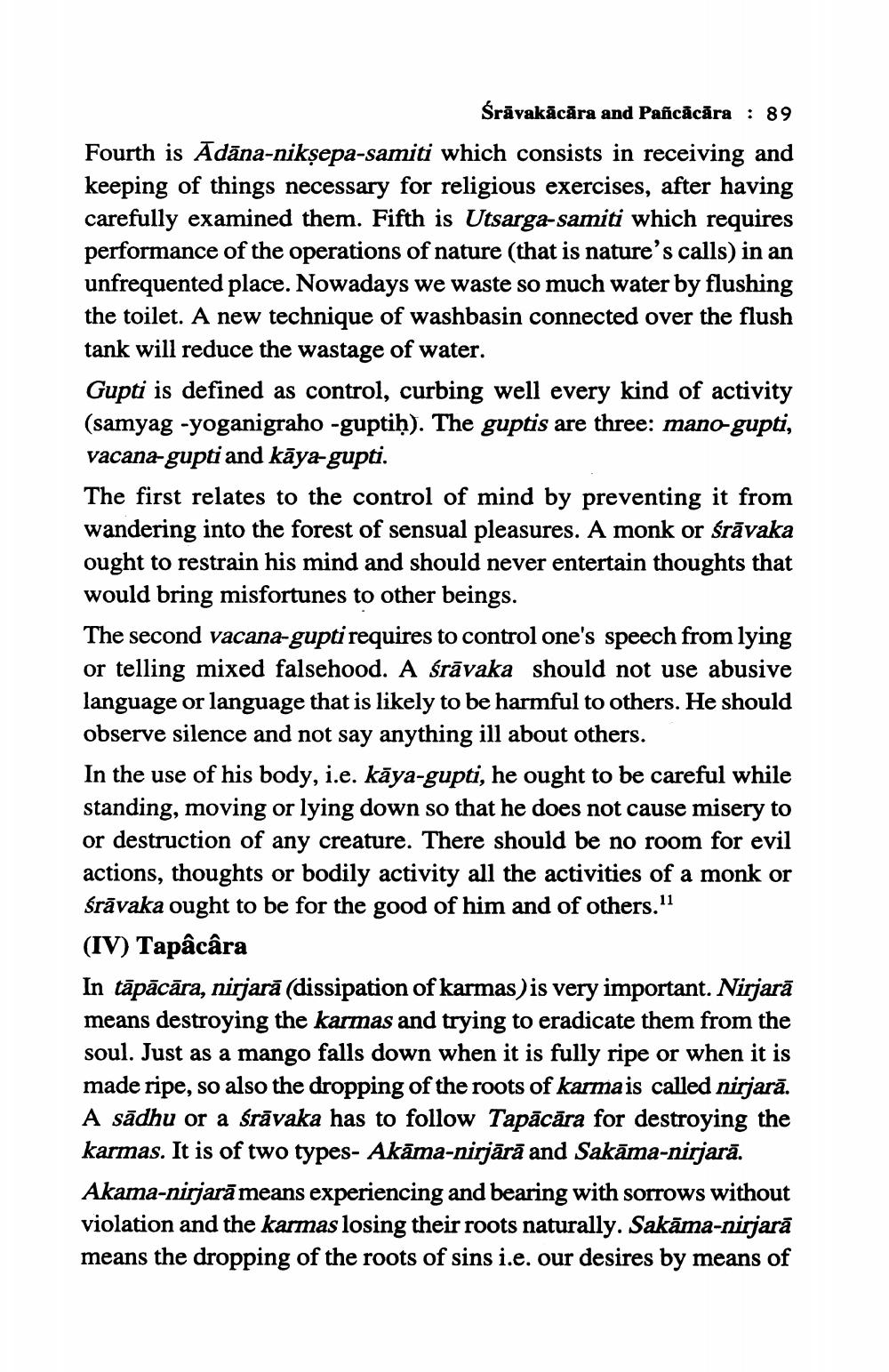________________
Śrāvakācāra and Pañcăcăra : 89
Fourth is Ādāna-nikṣepa-samiti which consists in receiving and keeping of things necessary for religious exercises, after having carefully examined them. Fifth is Utsarga-samiti which requires performance of the operations of nature (that is nature's calls) in an unfrequented place. Nowadays we waste so much water by flushing the toilet. A new technique of washbasin connected over the flush tank will reduce the wastage of water. Gupti is defined as control, curbing well every kind of activity (samyag -yoganigraho -guptih). The guptis are three: mano gupti, vacana-gupti and kāya-gupti. The first relates to the control of mind by preventing it from wandering into the forest of sensual pleasures. A monk or śrāvaka ought to restrain his mind and should never entertain thoughts that would bring misfortunes to other beings. The second vacana-gupti requires to control one's speech from lying or telling mixed falsehood. A śrāvaka should not use abusive language or language that is likely to be harmful to others. He should observe silence and not say anything ill about others. In the use of his body, i.e. kāya-gupti, he ought to be careful while standing, moving or lying down so that he does not cause misery to or destruction of any creature. There should be no room for evil actions, thoughts or bodily activity all the activities of a monk or śrāvaka ought to be for the good of him and of others. 11 (IV) Tapâcâra In tāpācāra, nirjarā (dissipation of karmas) is very important. Nirjarā means destroying the karmas and trying to eradicate them from the soul. Just as a mango falls down when it is fully ripe or when it is made ripe, so also the dropping of the roots of karma is called nirjarā. A sādhu or a śrāvaka has to follow Tapācāra for destroying the karmas. It is of two types- Akāma-nirjārā and Sakāma-nirjarā. Akama-nirjarā means experiencing and bearing with sorrows without violation and the karmas losing their roots naturally. Sakāma-nirjarā means the dropping of the roots of sins i.e. our desires by means of




